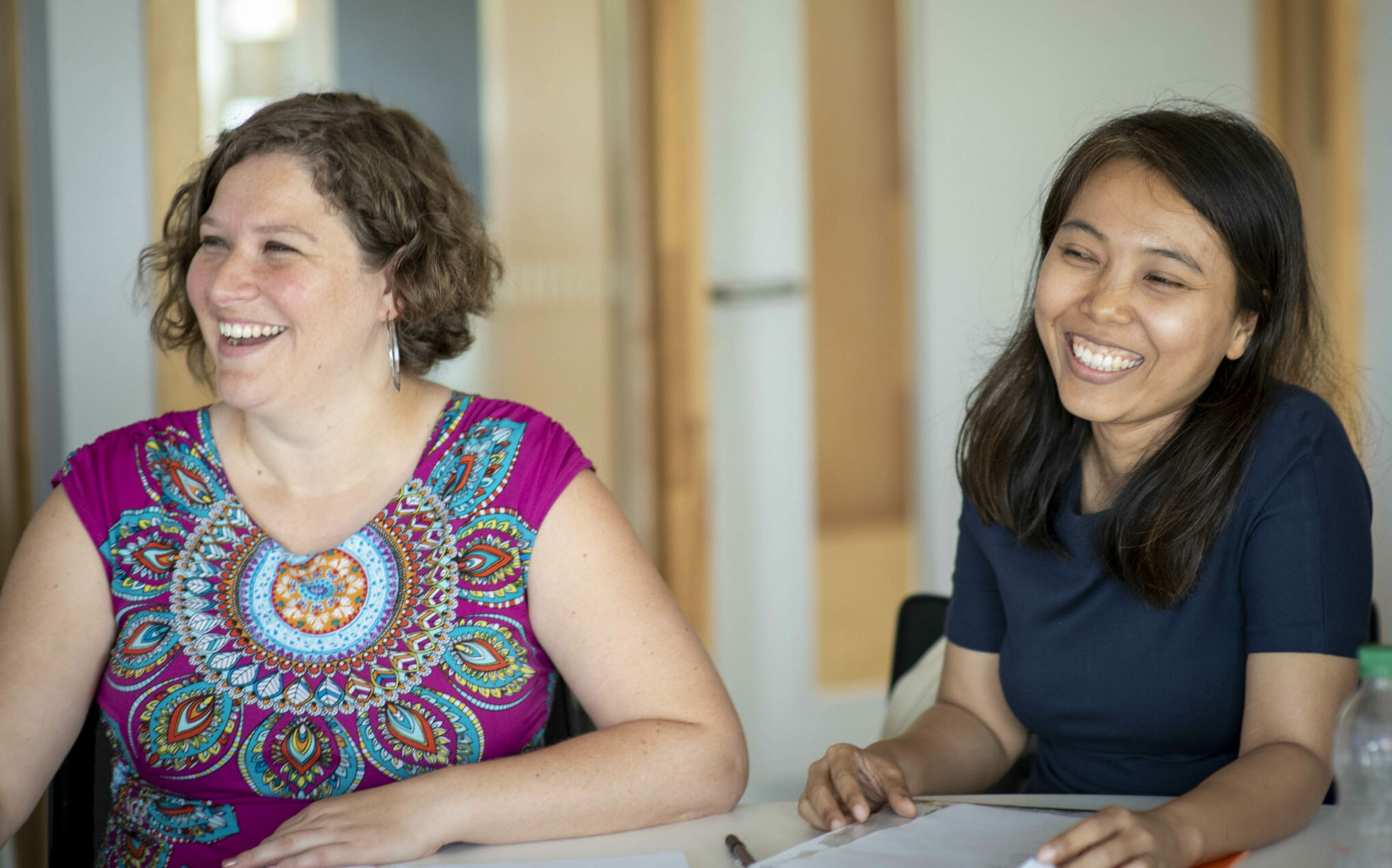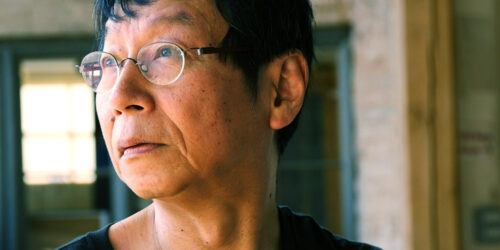
So you love literary translation and you’re thinking of embarking on it as a career – but where do you start? Here are five great steps to consider early on, courtesy of twice International Booker Prize-shortlisted translator Sophie Hughes.
Sophie was a mentee on our 2015 Emerging Translator Mentorship programme, working with mentor Margaret Jull Costa on translating from Spanish to English. Since its foundation in 2010 by Daniel Hahn the scheme has supported around 90 early-career translators in 32 languages by matching them up experienced translators for a six-month period. Find out more here
Don’t focus on publishing at the start
Translate for yourself – in the evenings, on the weekend – and translate whatever you want. You don’t need to worry about rights or reputations if you retranslate Homer, or Borges, or de Beauvoir for your eyes only, for your pleasure and training. Don’t complicate things too soon by aiming to publish. Just translate. There will be time to publish your handiwork, and you’ll know when you’re ready (part of the job is knowing when a translation is fit for consumption), but hurry slowly. It is possible you could confuse the kick you get out of seeing your name in print for the rush of translating something well. Make sure you’re addicted to the steady, mundane, repetitive act of sitting down to face the black page each day before deciding that translation is the career for you.
Don’t give up your day job (yet)
Many if not most literary translators translate alongside other – salaried or steadier – jobs, so I wouldn’t recommend giving up your post at the first book contract or sooner. I translate better when I can somehow transcend my own world and really immerse myself in that of the book: very hard to do if you are stressed about money. Yes, translation may encroach upon your weekend or ‘free time’ if you are also working a job in the week, but personally, and most of the time, I have found this is a small price to pay for more financial security.
Join the community
No translator can tell another how to get work as if it were a formula. But you can learn from the collective, from colleagues and peers you meet. Are you at university or school? Start a translation book club. Currently another kind of translator? Join the Emerging Translators Network or (if you fulfil the requirements) the Society of Authors’ Translators Association and get informed. Working in full-time publishing and dream of translating a novel? Go to as many of the literary translation-related events and book launches as you can across the country and at festivals. There are some hotspots, like Free Word Centre, the British Library, or London Book Fair’s Literary Translation Centre. Join the mailing lists of all of the indie presses you like and you’ll find out about events they are putting on (Comma Press, And Other Stories, and Charco Press, for example, all operate outside of London). Join Twitter if that’s your thing (maybe consider giving it a try even you suspect it’s not; it’s a fantastically efficient way to find out what’s going on in the translation community and world).
Make sure you’re addicted to the steady, mundane, repetitive act of sitting down to face the black page each day before deciding translation is the career for you
Be proactive
In the first years as a literary translator, it is pretty safe to say that the work isn’t going to come to you unless your language combination is very rare, but even then someone needs to know you exist in order to approach you. Be a sniffer dog. It helps to read a lot of literature from the country or countries where your language is spoken: new, old, ancient… Just keep sniffing out the good stuff. By being an avid and knowledgeable reader in your source language, you might also gain a reputation among publishers for being someone with their finger on a pulse that they themselves cannot access, usually because of language or time constraints.
Be proactive about becoming visible: if you go to literary or translation events and launches, do talk to people there. This isn’t easy, especially if you’re shy and new, but you can always use an online platform like Twitter (where it’s encouraged for strangers to speak to one another!) to join one lively group within the translation community. Writing to editors with book ideas is a good idea, but you need to know who you’re writing to, what their tastes are, what their submission policy is, how to write an efficient proposal/pitch (you can find some tips for this online, but there are often whole classes on how to do this at the various literary translation summer schools in the UK, or with an informal translator mentorship such as those offered by translators Rosalind Harvey or Jen Calleja). You could approach editors who you know publish literature in translation and offer yourself as a reader to write book reports. Don’t know how to write a report? Ask a translator. Don’t know a translator? Introduce yourself to one whose work you admire. Like I say, be proactive.
And lastly, don’t be like me at twenty-four: fresh out of my Master’s degree and with my head in the clouds thinking publishing was all about literature. It’s not. It’s an industry, and you need to know how it works, which includes but is not limited to: how books get bought and sold, who holds which rights, what agents, scouts and foreign rights departments do. For better or worse, knowing your trade is about so much more than conveying ‘the spirit of a book’ in a new language.
Read
Read to become a better, more adaptable writer. Read in translation, by all means, and of course in your source language/s, but, I believe most crucially, read in your target language/s: classics, contemporary works, poetry, novels, newspapers. It has stood me in good stead to remember this job is about making contact, and that to ‘carry across’ (trans, ‘across’ + ferre, ‘to carry’) the original is to place it in the hands of the reader, so that it has at least the potential to touch a deep part of them, to trigger some latent understanding of a character’s predicament, or perhaps recall the way a relative or childhood friend used to speak to them, to encourage them to empathize and truly exist, for a while at least, in the world of the book: this can only happen if you write very well in the target reader’s language (in my case English), the language of their emotional world. So keep reading widely in that language.
About Sophie Hughes
 Sophie Hughes is a literary translator of Spanish-language writers such as Alia Trabucco Zerán, Laia Jufresa, Rodrigo Hasbún and José Revueltas. She has been shortlisted twice for the International Booker Prize, most recently in 2020 for Fernanda Melchor’s Hurricane Season, and was also longlisted in 2020 for her co-translation, with Margaret Jull Costa, of Enrique Vila-Matas’ Mac and His Problem. Sophie currently works with the Stephen Spender Trust promoting translation in schools. She is the co-editor of the anthology Europa28: Writing by Women on the Future of Europe in association with Wom@rts and Hay Festival and Comma Press. Twitter
Sophie Hughes is a literary translator of Spanish-language writers such as Alia Trabucco Zerán, Laia Jufresa, Rodrigo Hasbún and José Revueltas. She has been shortlisted twice for the International Booker Prize, most recently in 2020 for Fernanda Melchor’s Hurricane Season, and was also longlisted in 2020 for her co-translation, with Margaret Jull Costa, of Enrique Vila-Matas’ Mac and His Problem. Sophie currently works with the Stephen Spender Trust promoting translation in schools. She is the co-editor of the anthology Europa28: Writing by Women on the Future of Europe in association with Wom@rts and Hay Festival and Comma Press. Twitter







